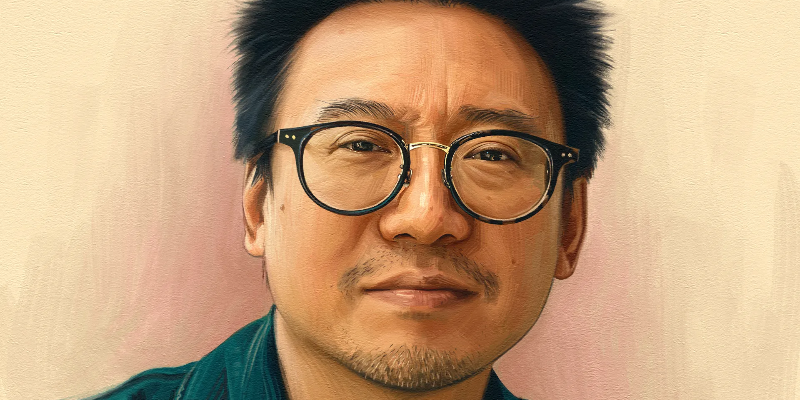
Hua Hsu on Finding the Future in the Past
This Week on the Talk Easy Podcast with Sam Fragoso
Illustration by Krishna Bala Shenoi.
Talk Easy with Sam Fragoso is a weekly series of intimate conversations with artists, authors, and politicians. It’s a podcast where people sound like people. New episodes air every Sunday, distributed by Pushkin Industries.
*
One year ago, The New Yorker staff writer and critic Hua Hsu published his singular memoir entitled Stay True. Earlier this May, the autobiography won a Pulitzer Prize.
Upon its paperback release, Hsu joins us to discuss the epigraph that frames the book and his nomadic upbringing, scored by mixtapes, created by his Taiwanese father. Hsu then reflects on his arrival at UC Berkeley in the mid-90s and how he formed an unexpected bond with a schoolmate named Ken.
On the back-half, Hsu describes the horrific night that Ken’s life was taken, the aftermath of this tragedy, his attempts to make sense of the past twenty-four years in Stay True, his complicated relationship to memory and music, and how he’s held onto hope through telling this enduring story of friendship.
Subscribe and download the episode, wherever you get your podcasts!
From the episode:
Sam Fragoso: When you won the Pulitzer Prize, you said, “[Stay True] is not about the past, it’s about memory. For a long while I only remembered the terrible things; or maybe I chose to.” When it comes to the night of July 18th, 1998, what are those memories that play in your head?
Hua Hsu: That was the night Ken threw a housewarming party. It’s the last time any of us saw him alive. I played that night out in my memory so much in the days following — and the years since — that it now does feel like I’m watching a movie. I’ve thought about what it was like to be on the balcony talking to him, what it would have looked like from across the street to see us talking. His death was a senseless, freak thing. There was no way to return to the past. I ended up realizing that the reason I was writing this book wasn’t to make sense of the past, but it was to understand the future.
SF: It’s my understanding that you didn’t ask friends for their version of events. It almost seems like you were more interested in interrogating the objects from the past, than the people in it.
HH: Yes, it wasn’t a group biography. It wasn’t a history of the late 1990s. It was more a book about my own relationship to my own memories. As far as its reverberations through my life, I’ve never left campus… I still teach college students. I never really processed why I’m so drawn to campuses, to mentoring college students. The fascination with writing, the fascination with the past, the fascination with the impossibility of ever conjuring the past — I realized that a lot of these things are due to this absence.
SF: In the years that followed your friend’s passing, most of your work was about the future. You’ve said, “All of my work is about the future and about how artists who don’t have encumbrances like the rest of us imagine the future.” Do you think you gravitated to those stories and those artists because their ability to imagine the future was something you yourself wanted?
HH: I do. I think one of the reasons I’ve been drawn to records and movies and things that I’m interested in is because… it’s people drawing on things they’ve learned, their own things they’ve loved. They’re turning it into something else. There’s a forward propulsion to culture that stays rooted in the past, that stays rooted in these traditions and legacies, but it allows us to turn the past into something else.
__________________
Hua Hsu is a staff writer at The New Yorker and a professor of Literature at Bard College. Hsu serves on the executive board of the Asian American Writers’ Workshop. He was formerly a fellow at the New America Foundation and the Dorothy and Lewis B. Cullman Center at the New York Public Library. He lives in Brooklyn, New York with his family.
Sam Fragoso is the host of Talk Easy with Sam Fragoso, a weekly series of conversations with artists, activists, and politicians. His writing has appeared in The Atlantic, Vanity Fair, and NPR. After conducting seminal interviews with icons like Spike Lee, Werner Herzog, and Noam Chomsky, he independently founded Talk Easy in 2016.
Talk Easy
Talk Easy with Sam Fragoso is a weekly series of intimate conversations with artists, authors, and politicians. It’s a podcast where people sound like people. New episodes air every Sunday, distributed by Pushkin Industries.



















